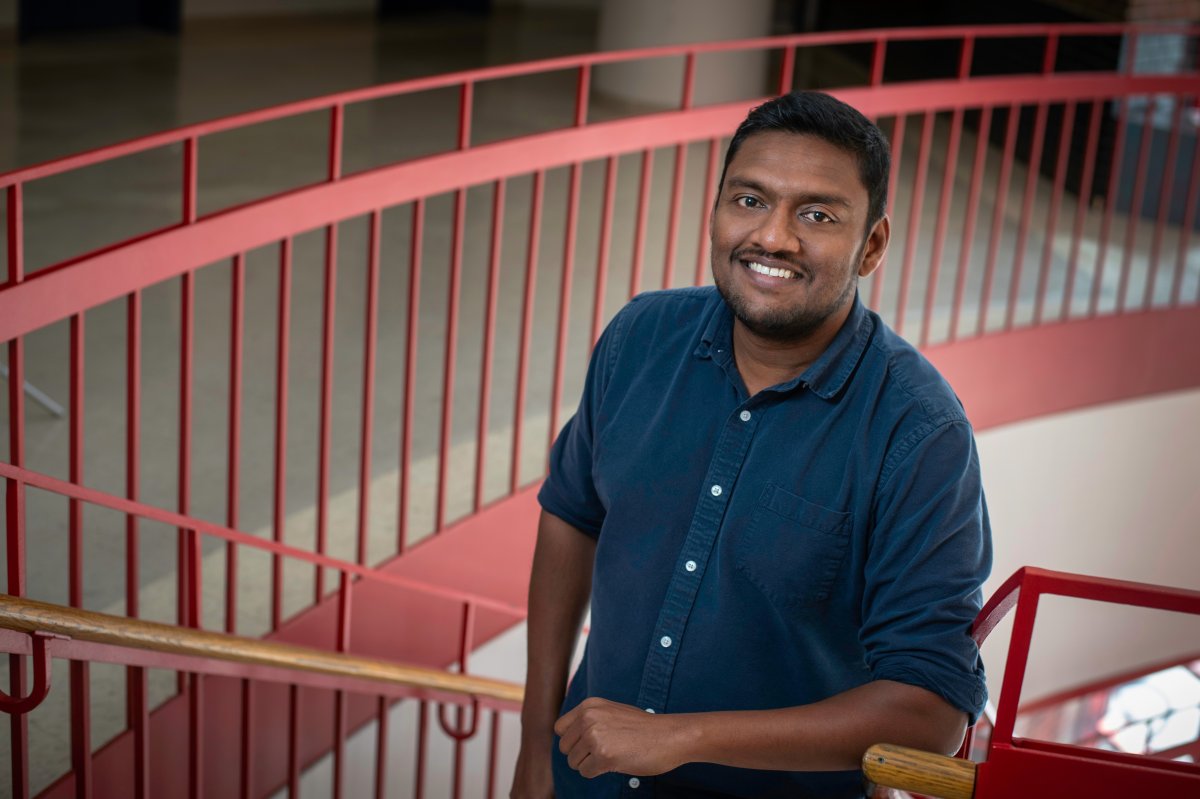Yogatheesan Varatharajah wins NSF CAREER Award

“It feels really good to be selected for this award,” said Varatharajah. “When you are just starting out in your academic career, the question of, ‘Do I fit in? Do I belong here?’ is always there. When you win an award like this, it tells you that you are going in the right direction. I feel very fortunate to have gotten this award in my first try.”
Varatharajah is broadly interested in leveraging the recent advances in machine learning (ML) to improve the healthcare system. For his research studies, he works very closely with clinical experts to develop novel domain-guided ML applications that reduce physician burden, augment their capabilities, and enhance the overall patient experience while ensuring reliability, scalability, and trust. A particular focus area of his work has been on improving the treatments for neurological diseases, where he developed novel graph-based ML methods to model brain activity patterns in diseases such as Alzheimer's and epilepsy.
“Despite the nationwide shortage of clinicians, most clinicians spend a significant amount of their time reviewing or annotating data from various tests,” said Varatharajah. “This is especially true in neurology, where trained experts spend a substantial amount of time reviewing lengthy multi-channel recording of brain activity, called the electroencephalogram (EEG). The tools we are working on can help reduce some of that burden. We are proposing a more robust and trustworthy approach that not only will make EEG review more scalable, reliable, and reproducible, but also will improve the capabilities of EEG review beyond what is currently possible. For this project, we are collaborating with domain experts in Mayo Clinic and Cleveland Clinic, and we will leverage their clinical data to validate our tools on a multi-institutional data set.”
In addition to his research project proposal, Varatharajah’s award outlined his teaching goals, which focus on developing a workforce and student pool that is proficient in ML applications in healthcare. This past spring, he taught a course on ML for healthcare and plans to further refine that curriculum to focus on time series healthcare data and making ML models more trustworthy and robust. His CAREER proposal also included outreach efforts to improve ML knowledge for younger students and clinicians.
“I plan to organize a boot camp for high school students that explores analyzing various healthcare data using modern computational tools,” said Varatharajah. “We also want to make sure that the new generation of clinicians have a course so they can understand how ML and AI are being used in a clinical setting.”
Varatharajah applied for the CAREER program in the summer of 2023, before he even started his faculty position at the University of Minnesota. He credits support from the department, as well as his collaborators at the Mayo and Cleveland Clinic for his acceptance into the program on his first round of applications.
“I hope this award helps me build a very strong program and I hope to continue to build collaborations and expand this line of research,” said Varatharajah.